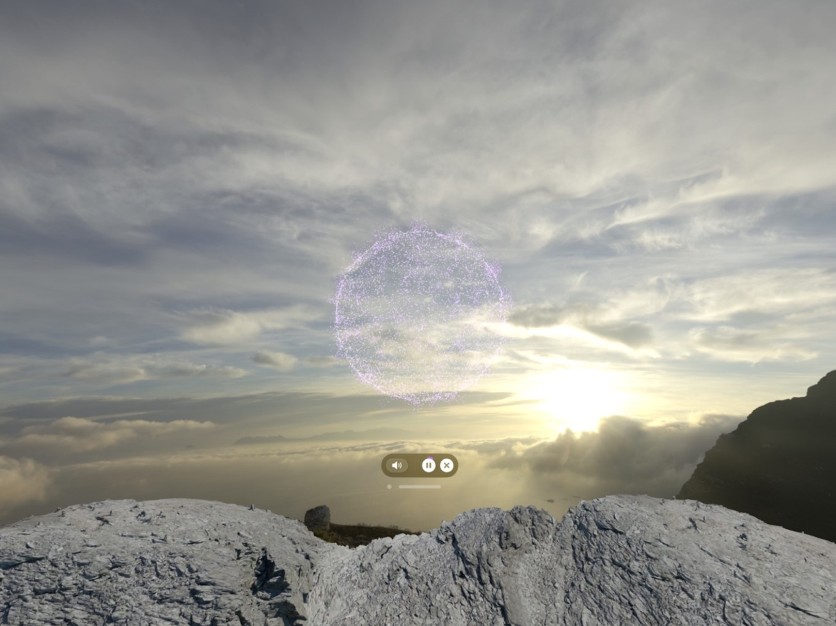The launch of Apple's Vision Pro has sparked an industry-wide exploration of practical applications for spatial computing beyond gaming and entertainment. Among the emerging use cases, mental wellness applications are drawing particular interest as developers experiment with ways to create more immersive and effective meditation experiences.
In this landscape, iOS developer Prithiv Dev Devendran has developed enlightenOS, a free experimental app that explores the intersection of artificial intelligence and immersive technology. The project takes an unconventional approach to meditation, leveraging AI to generate meditation content in real time rather than relying on pre-recorded sessions.
The technical implementation by Prithiv Dev demonstrates what's possible when spatial computing meets wellness applications. Users find themselves in a mountain environment where spatial audio creates a three-dimensional soundscape that adapts to movement and position. This audio engineering approach enhances the feeling of presence, showcasing how spatial computing could transform traditionally mobile-based experiences.
"The potential of spatial computing in wellness applications is just beginning to be explored," notes Prithiv Dev. "Current meditation apps are limited by their 2D interfaces and pre-recorded content. Vision Pro's capabilities open up new possibilities for creating more engaging experiences."

Recent industry trends point to growing interest in AI-powered wellness applications, particularly as spatial computing platforms emerge. While VR hardware currently remains at premium price points, experimental applications like Prithiv Dev's enlightenOS provide early insights into future possibilities. The app serves as a technical proof-of-concept, demonstrating potential directions for wellness platforms as the technology becomes more accessible.

The timing coincides with broader shifts in how technology approaches mental wellness. As the industry moves toward more sophisticated on-device AI capabilities and immersive experiences, the potential for personalized therapeutic content grows. The mental health application segment, in particular, could benefit from these technological advances.
Looking ahead, the role of AI in spatial computing applications appears increasingly significant. The ability to generate personalized content in real-time, combined with immersive environments, suggests new possibilities for mental health and meditation practices. As on-device AI models become more powerful, such applications could become more sophisticated and accessible.
For developers and industry observers, these early experiments with Vision Pro provide valuable insights into practical applications of spatial computing. Projects like Prithiv Dev's enlightenOS demonstrate how thoughtfully implemented features can create meaningful experiences that go beyond novelty. As the VR/AR industry evolves, such applications could help drive adoption by showing clear benefits in everyday use cases.
enlightenOS is available for free download on the Vision Pro App Store.
ⓒ 2025 TECHTIMES.com All rights reserved. Do not reproduce without permission.




